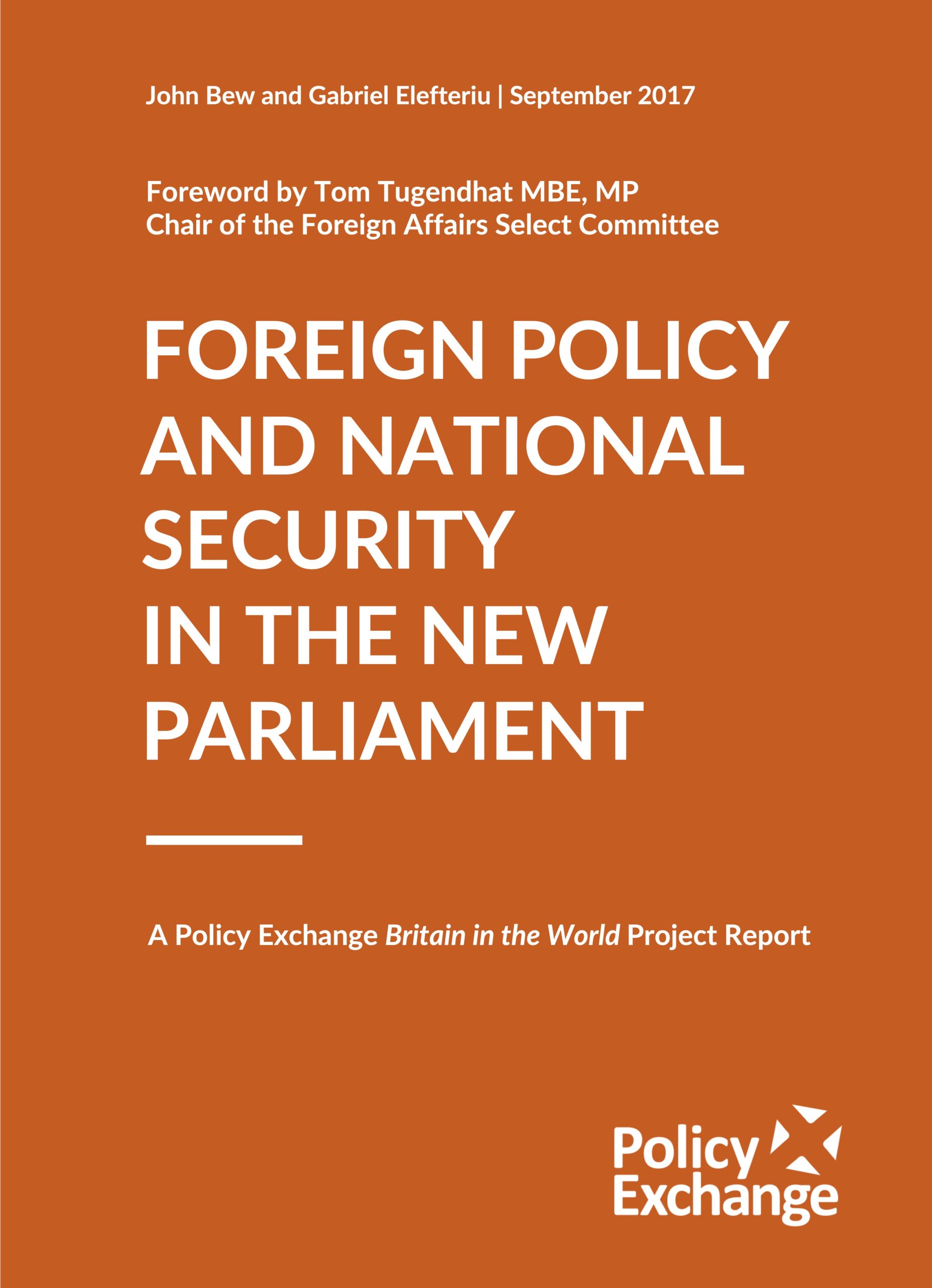
Foreign Policy and National Security in the New Parliament
In a new report published today, Foreign Policy in the New Parliament, Policy Exchange stresses the vital role of Parliament in debates about Britain’s place in the world. Against the backdrop of a hung parliament, and with Brexit-related legislation likely to be divisive in the House of Commons, the government will very much hope to avoid a major House of Commons vote on a controversial foreign policy issue. A new database of MPs’ voting records, as well as their constituency positions on Brexit, also demonstrates the dangers of internal division facing both main parties.
At a time of heightened international instability, however, the UK cannot afford to encourage the impression that it no longer aspires to be a problem-solving nation, willing to work closely with its allies on issues of mutual concern. The roles of the Foreign Affairs and Defence Select Committees and the Joint Committee on National Security Strategy are likely to be of increased importance as hubs for new, cross-party thinking about the UK’s priorities and place in the world. Where possible, they should seek to build cross-party consensus on key issues in UK foreign policy, following the example of the US House and Senate Committees on Foreign Affairs.
In a Foreword to the report, Tom Tugendhat MP, new Chair of the Foreign Affairs Select Committee, writes:
“Policy Exchange is at the forefront of new thinking about national security and the UK’s place in the world. Today, that means understanding Parliament. The hung parliament makes MPs’ views more important than ever and gives the pressures on them from the communities they represent an impact on the government’s foreign policy. That’s why this analysis of MPs and their constituencies is such an important addition to the national security debate of the UK.”
Professor John Bew, Head of Policy Exchange’s Britain in the World project and co-author of the report, said:
“Now, more than ever, our MPs must rise to the occasion in the debate about what sort of international role the UK wants to play in the twenty-first century. Parliament’s role is not simply to host set-piece debates but to use its committees to contribute to a wider strategic debate, and to seek to build consensus on the fundamentals of British grand strategy.”
Policy Exchange has analysed five key foreign policy and national security votes held in the House of Commons since the 2010 general election to understand how these issues have played out in recent years:
1. The vote on intervention in Libya, March 2011
2. The vote on a possible intervention in Syria, August 2013
3. The vote on commencing anti-ISIL airstrikes in Iraq, September 2014
4. The vote on extending the anti-ISIL airstrikes to Syria, December 2015
5. The final Trident vote, July 2016
We have produced a comprehensive parliamentary-data set focused on these divisions, along with a detailed breakdown of voting habits of individual MPs and their (and their constituency’s) positions on Brexit. Analysis of this data produces a number of key insights across major foreign policy/national security votes:
- If there is a significant Conservative rebellion against a government motion – along the lines of the 2013 Syria vote – or a free vote on a major foreign policy issue, it is plausible that the DUP could dissent from the government line – as they did in the 2013 Syria vote.
- 90% of the 153 anti-intervention Labour MPs of December 2015 are back in Parliament this year, as are 88% of the 66 Labour MPs who defied Jeremy Corbyn and voted for intervention alongside the government. This suggests that Labour divisions on the issue of intervention are likely to run as deep as ever.
- Labour MPs who voted against Trident achieved the highest rate of return to parliament – 94%, or 44 out of 47 Labour MPs – of any group from any major party voting either for or against all the votes we examined.
None of the 11 Liberal Democrat rebels who voted against their party leadership on the 2013 Syria motion have made it into the 2017 Parliament.


